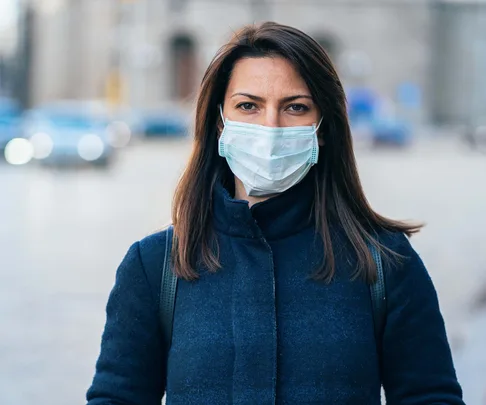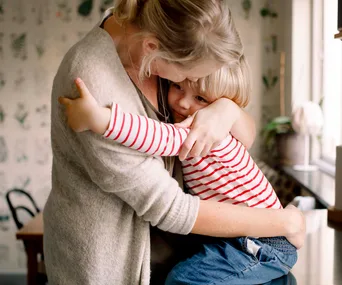We are in a state of national emergency and in lockdown. Here are the things New Zealanders need to know.
Key points:
From midnight 25 March, you must stay at home, unless you are an essential services worker or need to get essential services. Stay at home and save lives
647 confirmed and probable cases of Covid-19, with 58 new cases. One Covid-19 related death. 56 recovered. As at March 31.
You will still be able to go out to buy food from the supermarket, get health care, walk your dog, and exercise
Courier services, public transport and taxis/ride share services like Ola are operational for essential services
Outside the home, you must be two metres away from anyone (except those from your household)
If you feel unwell, stay at home
We are at emergency alert Level 4
New Zealand is in lockdown. The Government alert is at Level 4 for the next four weeks. This could be extended.
In short: we are in self isolation as a nation.
“We are fortunate to still be some way behind the majority of overseas countries in terms of cases, but the trajectory is clear,” said Prime Minister Jacinda Ardern.
“Act now, or risk the virus taking hold as it has elsewhere.”
Ardern implored people to stay home and act like you have Covid-19: “Every move you make could be a risk to someone else.”
“Make no mistake this will get worse before it gets better. We will have a lag and cases will increase for the next week or so. Then we’ll begin to know how successful we have been.”
A State of Emergency has been declared and enables special powers to maintain safety and stability, said Director General of Civil Defence Sarah Stuart-Black.
Essential services, like supermarkets, will be running but physical distancing must be maintained.
“If you do not have immediate needs, do not go to the supermarket,” said Ardern. “It will be there for you today, tomorrow, and the day after that. We must give time for supermarkets to restock their shelves, there will be enough for everyone if we shop normally.”
The purpose of escalating to alert Level 4 is to stop the virus in its tracks and reduce contact between people, said MBIE deputy chief executive Paul Stocks.
“We need as many businesses as possible to close now if our one shot at beating the virus is to be successful.”
All non-essential businesses must close. Schools closed entirely from midnight Wednesday.
Ardern said these measures will save lives – medical modelling shows tens of thousands of New Zealanders could die if we don’t stay at home.
You can still get food from the supermarket
At all alert levels, essential services – supermarkets, doctors, dairies, vets, emergency services and police, rubbish collection, petrol stations, internet services, pharmacies – will be operating. You must follow physical distancing rules. Countries that have imposed lockdowns have different rules.
Foodstuffs South Island chief executive Steve Anderson urged people to “shop normally”. New Zealand’s supply chain is robust and there is enough food supply, but supermarket staff are feeling huge pressure trying to restock shelves at the moment, he says.
A spokesperson for Countdown supermarkets, Kiri Hannifin, told Radio NZ that the supermarket chain is selling three times as much toilet paper in a day than it would in a week – and restocking is a waste of space in trucks which could be carrying food.
Restaurants, bars and cafes must be closed at alert Levels 3 and 4. Public transport will still be operating but will only be available for essential workers and people accessing essential services (like going to the supermarket, for example).
Dairies can be open as long as they stick to the one-in-one-out customer rule. Self-service laundries can stay open, with the two metre rule. Food delivery is prohibited, except meals-on-wheels and whole food delivery (eg subscription food boxes).
Big box stores like Mitre 10 are closed to the general public and only open to trade customers for essential purposes. The Warehouse must close. Liquor stores must close, unless they are within Licensing Trust areas.
Covid-19 cases will rise
There are 205 confirmed and probable cases of Covid-19 in New Zealand, with 50 new cases on 25 March. More cases are expected in the next ten days, said Director-General of Health Dr Ashley Bloomfield.
“Recent travel from overseas is still the main driver of our new infections.”
Ardern said New Zealanders still on their way home from overseas during lockdown will be screened when they arrive. If symptomatic, they will be quarantined in an approved facility. Those who have nowhere to isolate or can’t get home (e.g arrive in Auckland but live in Wellington) will also be quarantined.
“Our citizens coming home are the ones carrying Covid-19.”
Four cases are confirmed as community tranmission, three in Auckland and one in Wairarapa. Contact tracing is underway to determine the infection pathway.
“If community transmission takes off in New Zealand the number of cases will double every five days. If that happens unchecked, our health system will be inundated, and thousands of New Zealanders will die,” said Ardern.
“In the short term the number of cases will likely rise because the virus is already in our community. But these new measures can slow the virus down and prevent our health system from being overwhelmed and ultimately save lives.”
The Ministry of Health is continuing to identify, test and isolate to ensure we can stamp the virus out and slow it down.
Globally, there are more than 400,000 cases and more than 18,000 deaths. The majority of deaths are in Italy.
You can still go outside in your local area – but keep your distance
Prime Minister Jacinda Ardern said physical distancing should be “our new normal”. Going out to exercise or for a walk is fine, as long as you maintain the two-metre rule and do this in your local area. Do not visit playgrounds.
“We are asking that you only spend time with those you are in self isolation with. And if you are outside, keep your distance from others. That means two metres at all times. This is the single most important thing we can do right now to stop further community transmission.”
Driving in private vehicles is allowed to get food or medicine. You must stick to your local area.
Police commissioner Mike Bush told Newstalk ZB that people should only go out in their cars to get essential supplies.
The key message during lockdown is stay home:
Staying at home is meant to reduce the transmission of the virus.
For this to work, you are asked to only have contact with the people you live with.
If you want to talk to a friend, call or video chat with them.
If you want to talk to a neighbour, do it over the fence.
Please note that children CAN travel between the homes of separated parents so as long as they live in the same town/city.
Feel free to drop off groceries to others e.g. a grandma, but keep a 2 metre distance for her safety.
There is a new Government website for all Covid-19 information
Visit covid19.govt.nz to get the latest information and advice from the Government.
You can’t travel by air from midnight 25 March
During lockdown, New Zealanders can’t fly anywhere. At Level 4, only ‘essential’ people can travel but the Government has extended the Wednesday deadline for ‘non-essential’ people to Friday.
Our international borders are closed to foreign nationals.
Financial assistance is available
The Government has announced a $12.1 billion dollar relief package to try to counter the economic impact of the coronavirus, including measures to help businesses pay their staff.
Finance Minister Grant Robertson said the wage subsidy scheme and the business support package has been expanded.
All employers affected by COVID-19 will now be able to apply for the existing subsidy to support the wages of all of their workers.
Wash and dry your hands properly, often
Wash your hands with soap as long as it takes to sing the “Happy Birthday” song twice or the chorus of Dolly Parton’s hit song Jolene. Dry them thoroughly.
The symptoms of Covid-19
a cough
a fever (at least 38°C)
shortness of breath.
These symptoms do not necessarily mean you have Covid-19. The symptoms are similar to other illnesses that are much more common, such as cold and flu. Shortness of breath is a sign of possible pneumonia and requires immediate medical attention. The vast majority of people infected with Covid-19 will have mild symptoms.
We don’t yet know how long symptoms take to show after a person has been infected, but current World Health Organisation assessments suggest that it is 2–10 days.
COVID-19, like the flu, can be spread from person to person. When a person who has the virus coughs, sneezes or talks, they may spread droplets containing the virus a short distance, which quickly settle on surrounding surfaces.
You may get infected by the virus if you touch those surfaces or objects and then touch your mouth, nose or eyes.
That’s why it’s really important to use good hygiene, regularly wash and thoroughly dry your hands, and use good cough etiquette.
Stay home if you feel unwell, whether you think it is Covid-19 or not.
There is currently no vaccine
As this is a new virus, there is no vaccine available. Researchers are in the early stages of developing one. There is no specific treatment for Covid-19 but medical care can treat most of the symptoms.
Protect yourself and others
Cough or sneeze into your elbow or by covering your mouth and nose with tissues.
Put used tissues in the bin or a bag immediately.
Wash your hands with soap and water often (for at least 20 seconds).
Try to avoid close contact with people who are unwell.
Don’t touch your eyes, nose or mouth if your hands are not clean.
Avoid personal contact, such as kissing, sharing cups or food with sick people.
Clean and disinfect frequently touched surfaces and objects, such as doorknobs.
Stay home if you feel unwell.
Call Healthline on 0800 358 5453 if you have Covid-19 symptoms and have been to any countries or territories of concern or have been in close contact with someone confirmed with COVID-19.
Remember to follow official advice: visit www.covid19.govt.nz for more information.
Ring the dedicated Healthline 0800 number for COVID-19 health advice and information, NOT general enquiries.
Sources: Ministry of Health; WHO; Ministry of Foreign Affairs and Travel
Note: This article is being updated regularly.
This story originally appeared on our sister site Noted.



